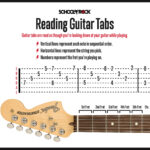Embarking on a journey to build your own guitar is an incredibly rewarding experience. However, before you dive into woodworking and fretboards, a crucial question arises: what’s the Cost Of Guitar construction when you decide to build it yourself? Let’s break down the expenses based on a real-world project to give you a clearer picture.
Material Breakdown: What Goes Into a DIY Guitar?
Building a guitar involves numerous components, each contributing to the final cost. The expenses can generally be categorized into materials and tools. For this analysis, we’ll focus solely on the materials purchased for a project, excluding tools, under the rationale that tools are a long-term investment usable for various projects beyond just one guitar.
Here’s a detailed list of materials and their respective costs from a guitar building project, providing a transparent view into the expenses involved:
| Qty | Description | Amount |
|---|---|---|
| 1 | 3/16″ x 48″ Steel Rod | $4.00 |
| 1 | Bleached White Bone Nut Blank | $4.82 |
| 1 | Bleached White Bone Saddle Blank | $8.27 |
| 1 | Fretboard Finishing Oil | $12.95 |
| 1 | Guitar Strings | $23.45 |
| 1 | Guitarmaking: Tradition and Technology | $26.40 |
| 12 | Laminated Wood Purfling (b/w/b ) – 2 ft | $28.20 |
| 1 | Mahogany Back and Sides Unbent | $89.49 |
| 10 | Mahogany Reverse Guitar Kerfing | $29.80 |
| 3 | Medium Fretwire – 2 ft | $9.51 |
| 1 | Nitrocellulose Spraying Lacquer – 1 quart | $25.86 |
| 2 | Pearl and Abalone Inlay Blanks | $57.80 |
| 12 | Pearl Dots | $7.80 |
| 2 | Polishing Compound | $34.68 |
| 1 | Rosewood Guitar Bridge Blank | $5.98 |
| 1 | Schaller M-6 Mini Guitar Machines | $66.24 |
| 10 | Side Pearl Dots | $5.53 |
| 2 | Sipo Mahogany Neck Blank | $52.90 |
| 1 | Sitka Spruce Soundboard – Grade AA | $20.38 |
| 1 | Soundhole Rosette – Black/White Herringbone | $9.44 |
| 1 | Tusq Bridge Pins | $18.49 |
| 4 | Uncarved Guitar Braces | $22.12 |
| 1 | Unslotted Rosewood Fingerboard | $16.60 |
| Total $580.71 |
|---|
This table meticulously outlines the variety of materials required, from different types of wood like Mahogany and Sitka Spruce, crucial for the guitar’s body and soundboard, to hardware components such as Schaller machine heads and Tusq bridge pins. Finishing materials like nitrocellulose lacquer and fretboard oil, along with decorative elements like pearl inlays and purfling, also contribute to the overall cost. Essential components such as strings, fretwire, and bone blanks for the nut and saddle are also accounted for. Notably, even educational resources like the book “Guitarmaking: Tradition and Technology” are included as part of the project’s investment.
Is Building a Guitar Cheaper Than Buying?
Upon reviewing the total material cost of $580.71 (based on prices from early 2012), it’s evident that building a guitar from scratch isn’t necessarily a budget-friendly alternative to purchasing a ready-made instrument. As the original project notes indicate, for a similar investment, one could potentially buy a “really nice guitar” off the shelf.
However, the value of building a guitar transcends mere monetary savings. The project emphasizes that if your goal is to “build something amazing,” the experience is unparalleled. The satisfaction of crafting an instrument with your own hands, understanding every component, and customizing it to your preferences offers a unique reward that mass-produced guitars cannot replicate. Furthermore, the expense is typically distributed over an extended period, aligning with the gradual progression of the building process, which can make the financial commitment feel less immediate.
In conclusion, while the cost of guitar materials for a DIY build might not undercut the price of commercially available guitars, the undertaking offers immeasurable value in terms of personal fulfillment, skill development, and the creation of a bespoke instrument uniquely crafted by you. The “cost of guitar” in this context extends beyond dollars and cents, encompassing the investment in time, effort, and passion for the craft of guitar making.

